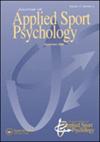在精英体育运动内外支持儿童心理社会发展的父母策略
IF 3.2
2区 心理学
Q2 HOSPITALITY, LEISURE, SPORT & TOURISM
引用次数: 3
摘要
摘要在精英青少年体育背景下,父母在支持孩子心理社会发展方面所起的作用研究仍然有限。本研究是在一所英国职业青年足球学院进行的,该学院有意将5Cs框架(Harwood;承诺、沟通、专注、控制、信心)纳入其球员发展过程。本研究的目的是探讨父母对他们在这种背景下支持年轻运动员心理社会发展的角色和经历的解释。对基金会中有一个孩子的30名父母(17名父亲,13名母亲;M年龄=44.8)进行了六个焦点小组(8-11 年)或青年发展阶段(12-16 年)。使用反射性主题分析对转录本进行分析。父母在学院内外支持孩子5岁孩子的策略包括提供鼓励和定制反馈,建立并与孩子分享期望,创造一个支持自主的环境,鼓励参与学院外的活动,以及了解足球和学院的性质。被认为阻碍家长支持的障碍反映了学院教练与家长沟通的重要性。讨论了相关建议和影响,以提高教练和家长之间的一致性,以及如何更好地调整家长教育,以支持精英青少年体育路径中的有意心理社会发展。概述:本研究在一所将心理社会框架纳入球员发展过程的职业足球学院进行,探讨了父母对其支持年轻运动员心理社会发展的角色和经历的解释。家长们讨论了支持孩子在体育运动内外发展的实用策略、障碍和建议。练习的意义父母可以通过考虑年轻运动员所处的更广泛的环境来支持他们的心理社会发展,包括他们在家里如何沟通,他们如何在体育项目中控制自己的情绪,以及他们如何在学校表现出承诺。当父母采用有意识的方法来支持心理社会发展时,年轻运动员可能会更加意识到将他们的心理社会技能转移到足球或直接的体育环境之外的可能性。在体育项目中加强家长和教练之间的沟通,以及为家长和教练提供的教育,可以帮助体育家长在体育项目内外更好地支持孩子的心理社会发展。参与家长5C项目可以让家长在学院足球赛中获得有意义的回报,不仅可以支持孩子,还可以帮助他们在精英青少年体育环境中满足为人父母的已知需求。本文章由计算机程序翻译,如有差异,请以英文原文为准。
Parental strategies for supporting children’s psychosocial development within and beyond elite sport
Abstract There remains limited research into the role that parents play to support their child’s psychosocial development within elite youth sport contexts. The present study was conducted in an English professional youth football (soccer) academy that has intentionally integrated the 5Cs framework (Harwood; commitment, communication, concentration, control, confidence) into its player development process. The purpose of the study was to explore parents’ interpretations of their roles and experiences of supporting young athletes’ psychosocial development in this context. Six focus groups were conducted with 30 parents (17 fathers, 13 mothers; M age = 44.8) who had a child in the foundation (8–11 years) or youth development phase (12–16 years). The transcripts were analyzed using reflexive thematic analysis. Parental strategies employed to support their child’s 5Cs within and beyond the academy included providing encouragement and tailoring feedback, establishing and sharing expectations with their child, creating an autonomy-supportive environment, encouraging participation in activities outside of the academy, and understanding football and the nature of the academy. Barriers perceived as hindering parents’ support reflected the salience of coach-parent communication at the academy. Accompanying recommendations and implications are discussed for enabling improved congruency between coaches and parents, and how parent education can be better tailored to support intentional psychosocial development within elite youth sport pathways. Lay summary: Conducted at a professional football academy that has integrated a psychosocial framework into the player development process, this study explored parents’ interpretations of their roles and experiences of supporting young athletes’ psychosocial development. Parents discussed practical strategies, barriers, and recommendations to support their child’s development in and beyond sport. IMPLICATIONS FOR PRACTICE Parents can support young athletes’ psychosocial development by considering the broader contexts in which they occupy, including how they communicate at home, how they control their emotions within their sport programs, and how they demonstrate commitment at school. When parents employ an intentional approach to supporting psychosocial development, young athletes may become more aware of the possibilities for transferring their psychosocial skills beyond football, or their immediate sport context. Strengthening the communication between parents and coaches within a sport program, and the education offered to parents and coaches, can help sport parents better support their child’s psychosocial development within and beyond the sport program. Engagement with a parent 5C program can provide parents with a meaningful return on their time in academy football to not only support their child but to help them navigate the known demands of being a parent in an elite youth sport environment.
求助全文
通过发布文献求助,成功后即可免费获取论文全文。
去求助
来源期刊
CiteScore
6.90
自引率
9.40%
发文量
39
审稿时长
>12 weeks
期刊介绍:
The Journal of Applied Sport Psychology (JASP) is a refereed journal designed to significantly advance thought, theory, and research on applied aspects of sport and exercise psychology. Submissions such as experimental studies, qualitative research, correlational studies, case studies, position papers, critical reviews, theoretical developments specific to applied research conducted in sport and/or exercise settings, or having significant applied implications to sport and exercise, are appropriate content for the JASP. Please see the recent Editorial for further details on the aims and scope of the journal. JASP is a non-proprietary journal that is an official publication of the Association for Applied Sport Psychology (AASP). The purpose of AASP is to promote the development of psychological theory, research, and intervention strategies in sport and exercise psychology. The Journal is a direct benefit of membership in AASP and is received by its student and professional members. The publisher of the JASP is Taylor and Francis, Inc. of Philadelphia, PA.

 求助内容:
求助内容: 应助结果提醒方式:
应助结果提醒方式:


